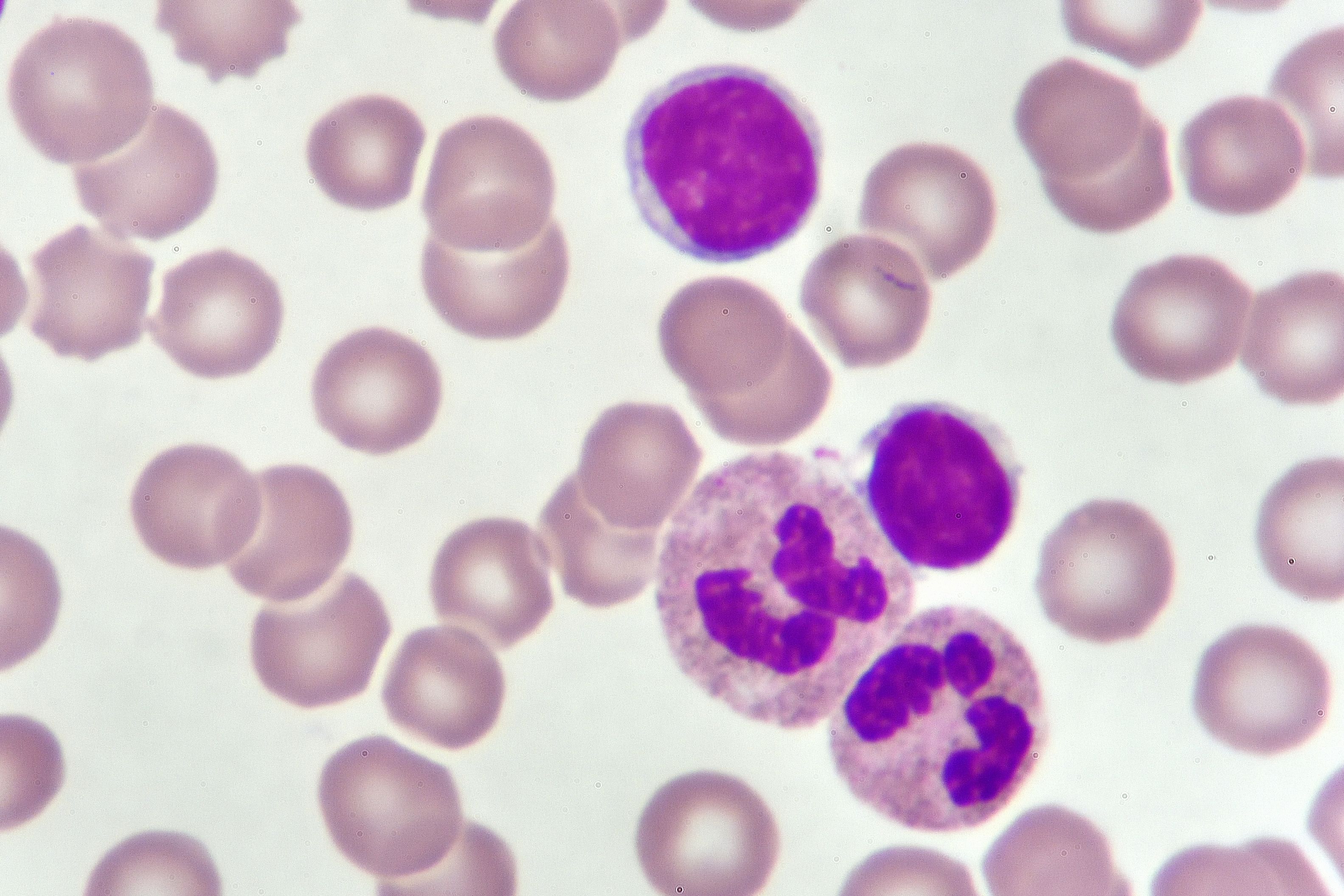Adding Bendamustine to Venetoclax Combination Treatment Increased AEs in R/R CLL
The incidence of adverse events appeared to increase when bendamustine was added to venetoclax for the treatment of patients with released or refractory chronic lymphocytic leukemia

When adding bendamustine to regimens containing venetoclax (Venclexta) for patients with either relapsed/refractory (R/R) or first-line chronic lymphocytic leukemia (CLL) data showed that this addition increased toxicities in patients and did not have a clear efficacy benefit, according to research published in Haematologica.1
In a multi-arm, non-randomized, open-label, phase IB study (NCT01671904) the primary endpoint of the study was to evaluate the maximum tolerated dose (MTD) and safety/tolerability of adding bendamustine to both combinations of venetoclax with rituximab and venetoclax with obinutuzumab. Ultimately, no dose-limiting toxicities were observed and the MTD was not reached. Patients were put on 6 cycles of either schedule A, venetoclax with bendamustine/rituximab (BR), or schedule B, venetoclax with bendamustine/Obinutuzumab (BG), until disease progression or a fixed duration of 1 year of treatment.
“Whether the addition of a chemotherapy agent such as bendamustine to Ven-R or Ven-G could further improve outcomes in CLL has not yet been elucidated,” the researchers explained in their paper. “The combination of venetoclax with bendamustine plus rituximab produced greater growth inhibition in non-Hodgkin lymphoma (NHL) xenograft models than either Ven-R or BR alone, suggesting potential for increased clinical activity in B-cell malignancies.”
Overall, 33 patients with R/R disease and 50 patients in the first line of treatment were enrolled in the study. Researchers found that safety was similar in both schedules and no tumor lysis syndrome occurred in dose-finding. The most frequent grade 3-4 adverse event (AE) was neutropenia with 64% of patients with R/R disease experiencing it and those with first-line Ven-BR was 85% but 55% in the Ven-BG group. Overall, the grade 3-4 infection rate was 27% in patients with R/R CLL, 0% with first-line Ven-BR, and 27% with Ven-BG.
All patients evaluated in the trial reported 1 or more AE and all grade infusion events occurred in 12% of R/R patients compared to 45% of patients on first-line treatment. Serious AEs were reported in 52% of R/R patients and 53% in patients in the first line with more grade 3-4 AEs occurring in the combination arm compared to patients on monotherapy. For example, 65% of patients during combination therapy reported grade 3-4 neutropenia compared to 39% during monotherapy. Bendamustine was permanently discontinued due to AEs in 33% of patients with R/R disease and 37% of patients in the first line, with the most common AE leading to discontinuation being neutropenia.
Bendamustine’s role in CLL combination treatment appears to be more limited than researchers expected as efficacy results were also limited and did not show a clear benefit. However, overall response rates (ORR) were high with 91% (30 0f 33) patients with R/R disease responding to treatment and 42% experiencing a complete response (CR). These responses, however, were compared to previous results of patients on these treatments without bendamustine as by the end of the treatment discontinuation rates were high. Patients still showed a good progression-free survival rate (PFS) with a median 24-month PFS of 87% among R/R patients (95% CI, 74%-99%), 96% in the first-line Ven-BR group (95% CI, 89%-100%) for 100% (95% CI, 100%-100%) for patients on Ven-BG in the first-line.
“The fact that fewer than half of all patients were able to complete the full 6 cycles of bendamustine may at least partially explain the apparent lack of efficacy seen here in comparison with the efficacy of backbone Ven-R or Ven-G, despite the preclinical rationale,” the researchers concluded.
Reference
Stilgenbauer S, Morschhauser F, Wendtner CM, et al. Venetoclax plus bendamustine-rituximab or bendamustine-obinutuzumab in chronic lymphocytic leukemia: final results of a phase 1b study (GO28440). Haematologica. 2021 Nov 1;106(11):2834-2844. doi: 10.3324/haematol.2020.261107
Selection of Next-Gen BTK in CLL Limited By Lack of Direct Comparison
February 4th 2025During a Case-Based Roundtable® event, Nakhle Saba, MD, and participants discussed the data supporting the 2 newer BTK inhibitor therapies acalabrutinib and zanubrutinib in patients with chronic lymphocytic leukemia who received 1 prior line of therapy in the second article of a 2-part series.
Read More